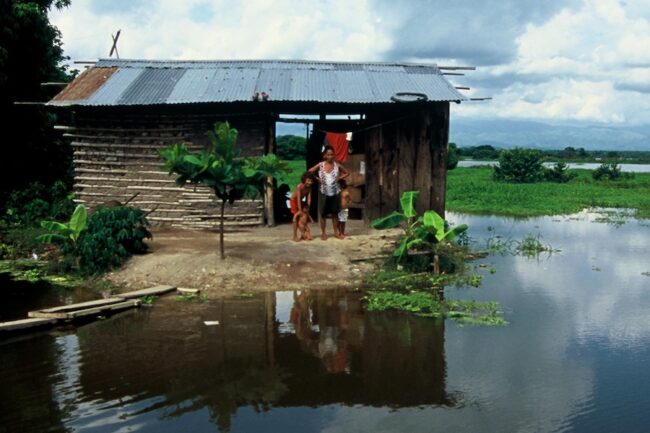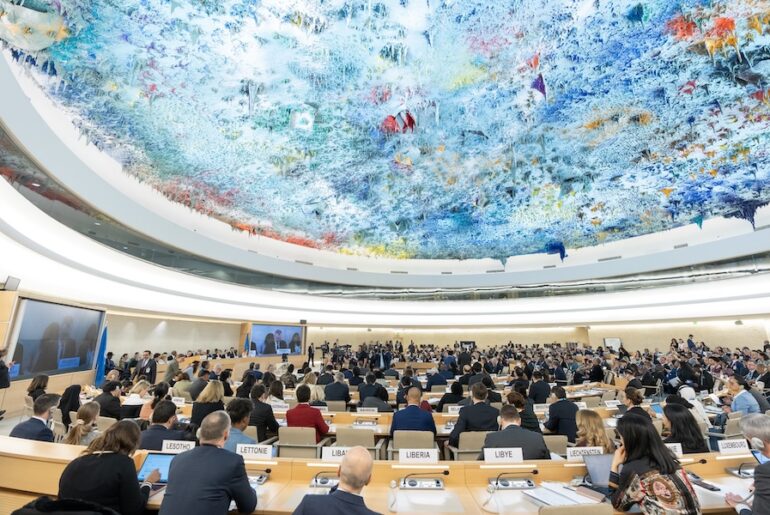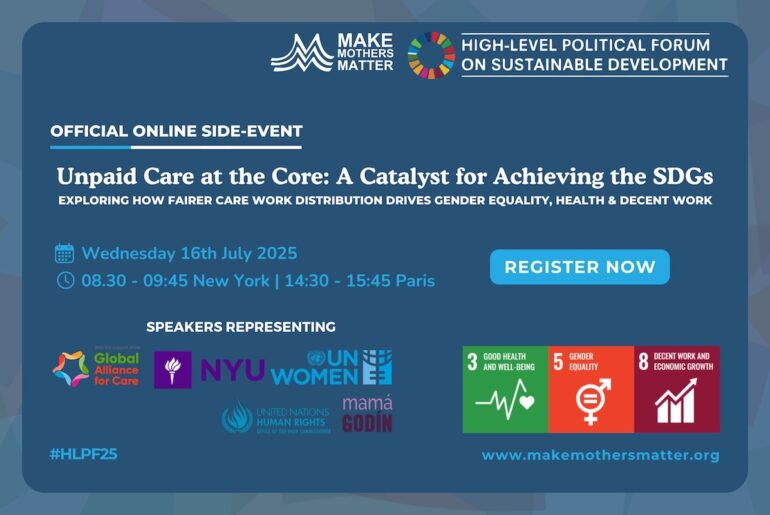Climate Change impacts mothers’ unpaid care work
03.07.22
UN Geneva, Human Rights Council - Responding to a call for input by the UN Special Rapporteur on Climate Change, MMM highlights the specific impacts of climate change – notably in terms of loss and damage - on mothers and on their ability to care for and educate their children.

The adverse effects of climate change, which, like most crises, exacerbates existing inequalities and vulnerabilities, disproportionately affect women. Because they are often confined to roles and jobs that make them more dependent on natural resources; because they face barriers to financial and technical support; because they are denied access to resources and ownership, women are hindered in their adaptation to climate change and in their ability to cope with a climate disaster.
As climate change impacts access to clean water, nutrition and health, as well as livelihoods and food security, women and children also suffer disproportionately from loss and damage, which are devastating and often not quantifiable.
Links between climate change and unpaid care work
In our contribution, MMM draws particular attention to the impact of climate change on unpaid care work, which is largely overlooked.
Climate change often increases the time women have to spend on domestic and family care work. This foundational yet unpaid work of caring is mostly done by women, and is already a cause of economic injustice and hardship, especially for mothers. Climate change only makes matters worse.
The impact of climate change on food security, access to clean water, or on health, all increase the time and efforts women must put into unpaid care work. For example, climate change- induced desertification makes women walk longer distances to fetch water and cooking fuel. Rising temperature has an effect on children’s health, requiring increasing care. Recurring floods force mothers to flee with their children and repair damages when water recedes.
The Covid-19 pandemic has already shown how crises increase the level of care work required while reducing the number of people who are able to undertake care work. Women’s unpaid care work has regularly acted as a ‘shock absorber’ for all sorts of threats and crises, and it is not different with the Climate crisis.
Increasing women’s unpaid care work translates into further losses of opportunities for them, including income earning and education opportunities. It exacerbates existing inequalities and unbalanced power relations with men, undermining any progress towards Gender Equality, at a great cost for society and the economy.
It is therefore of utmost importance
- to take a ‘care lens’ when devising any climate change adaptation or mitigation strategy, and look at the impacts on mothers and their children
- to inform and educate women on climate change and possible mitigation and adaptation strategies
- to harness women’s skills and experience, especially indigenous women’s, as well as their capacity to adapt
- to involve women at every level of climate change related decision-making
Read our full contribution to the call for input
More information on the mandate of the UN Special Rapporteur on the promotion and protection of human rights in the context of climate change, his report and this call for input can be found on the OHCHR website.
Envisioning care as a common thread to global crises
29.07.24
UN New York - Our virtual HLPF side-event brought together experts to shed light on how the various global crises we face (in particular climate change and other environmental crises,
We call for multi-stakeholder approach to recognise and support unpaid care work
21.07.24
UN New York - Participating in the meeting of the UN Economic and Social Council (ECOSOC) on care and support systems, MMM reaffirmed the principle of co-responsibility, which should underpin
The New EU Gender Equality Roadmap : A Call for Inclusion of Mothers
04.03.25
The European Commission’s initiative on a new Gender Equality Roadmap post-2025, marks a significant step forward in addressing gender disparities across the European Union. Make Mothers Matter (MMM








